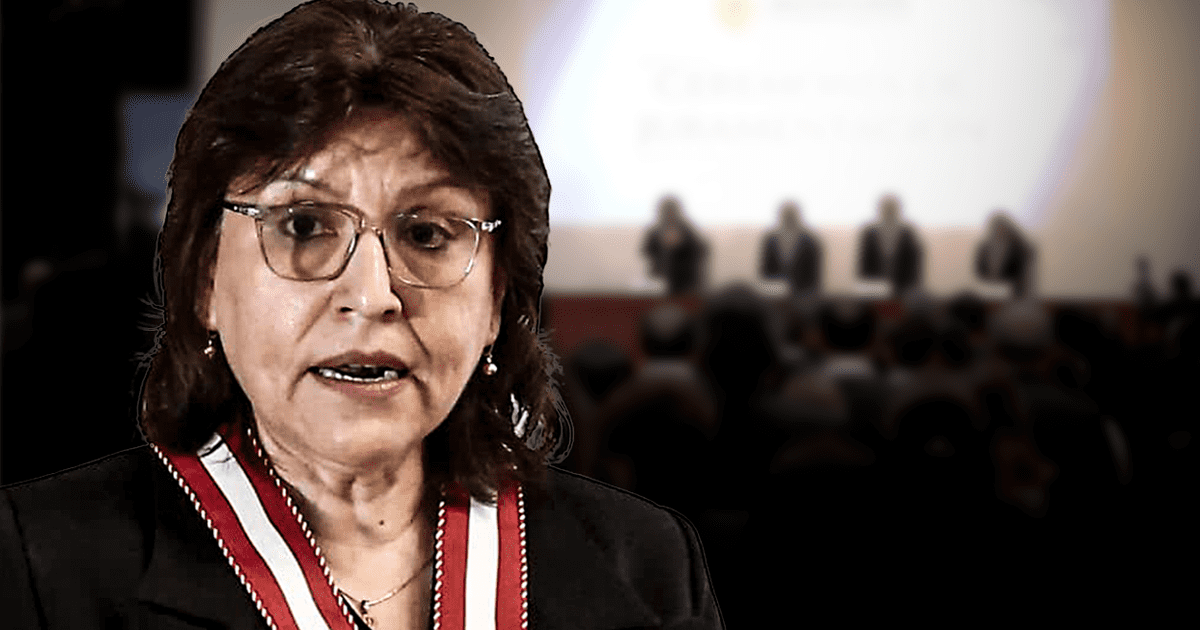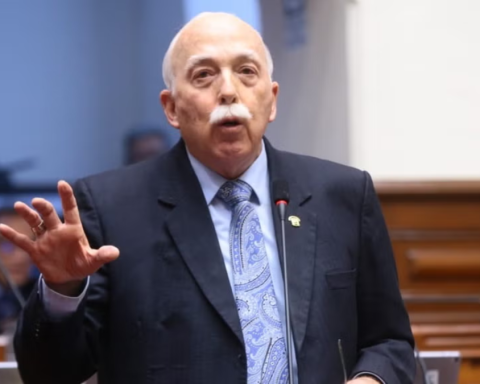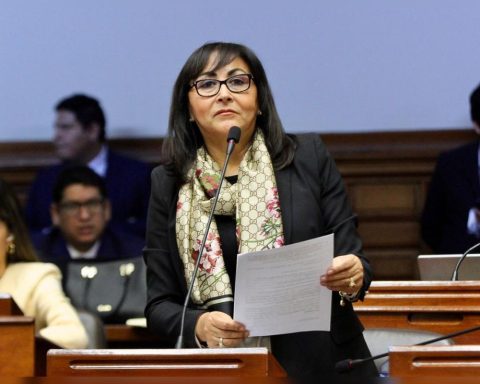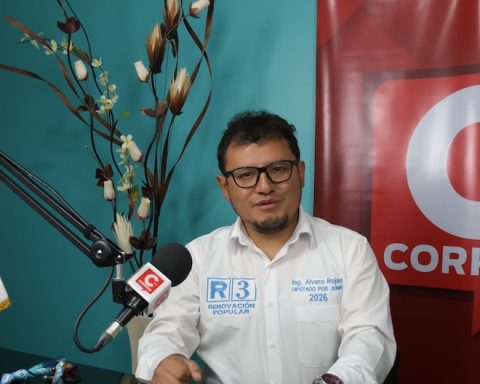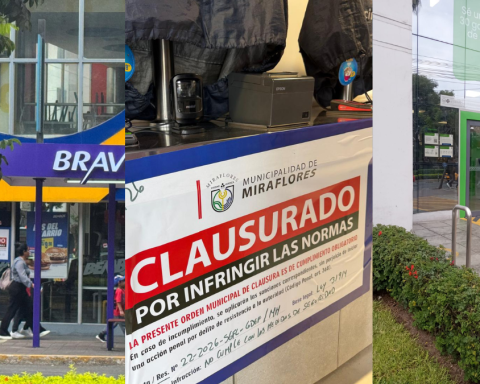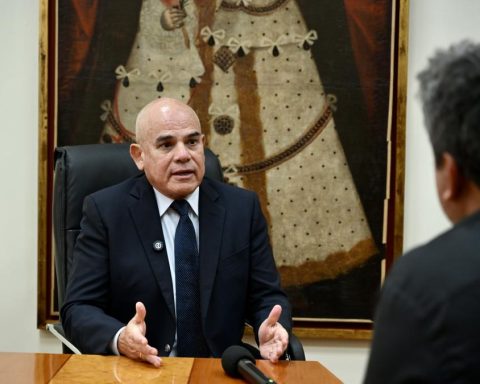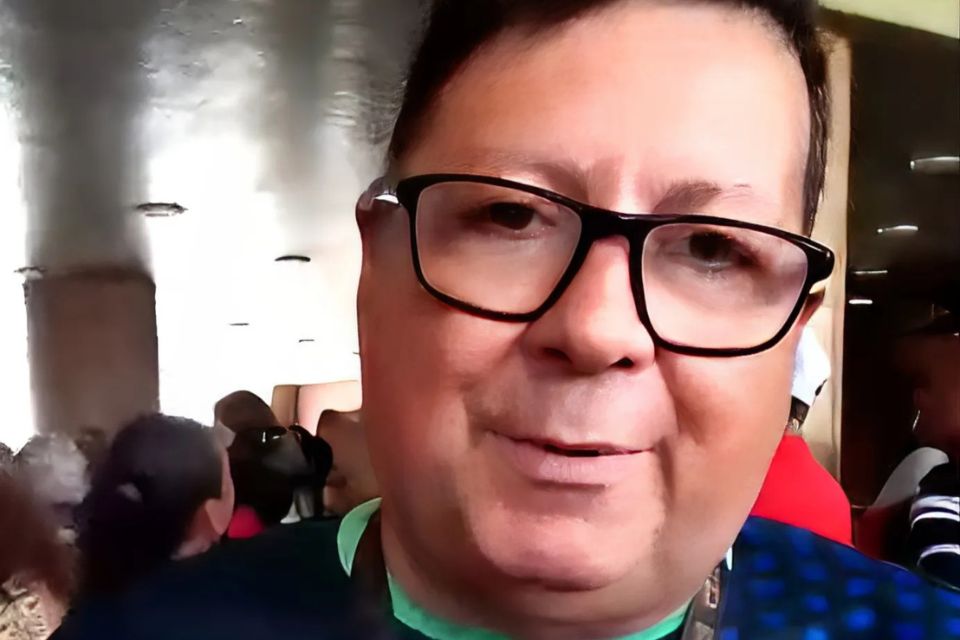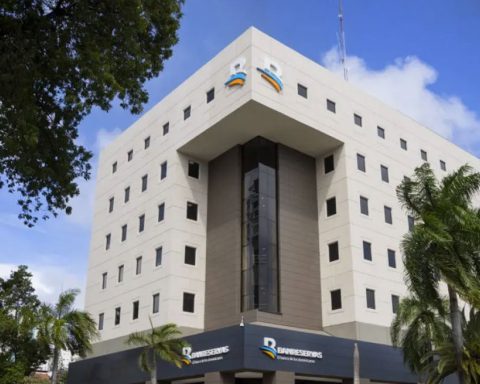The new prosecutor of the Nation, Delia Espinoza Valenzuelaofficially assumed his role today in a ceremony held at the headquarters of the Public Ministry in Lima. This event took place without the presence of President Dina Boluarte or representatives of Congress, who were not invited by decision of the supreme prosecutor. Espinoza was elected by the Board of Supreme Prosecutors on October 18in a session in which he had the support of Pablo Sánchez, Zoraida Ávalos and his own vote, succeeding the interim prosecutor Juan Carlos Villena.
During her swearing-in speech, Delia Espinoza presented the pillars of her management, in which she underlined her clear commitment to the fight against organized crime. Among the most notable initiatives, he announced the implementation of new tools and resources in specialized prosecutor’s offices, in order to address not only large criminal organizations, but also local gangs that affect the security of citizens throughout the country.
“We will reactivate agreements and essential collaborations that the Public Ministry has within the scope of its functions. Our current Organic Law dates back to 1981, for this reason, we will promptly promote the approval of the new Organic Law of our institution with the essential objective of consolidating the principles , institutional values and optimize their operation,” he said.
Among the priority cases that will assume importance in Delia Espinoza’s management includes high-profile investigations, such as those involving President Dina Boluarte in alleged meetings with former prosecutor Patricia Benavides and the well-known Cofre case. Another relevant process is the one faced by the Minister of the Interior, Juan Santiváñez, who is being investigated for alleged abuse of authority, a case that has captured the attention of public opinion.
Delia Espinoza prepares a lawsuit of unconstitutionality against the law that empowers the PNP to carry out preliminary investigations
Delia Espinoza is aware that the legislative process in the country is under the responsibility of Congress, which has the power to approve laws. However, he maintains that it is essential to remember that there are mechanisms that allow autonomous organizations, such as the Public Ministry, to intervene in this process. This body can observe or disagree with the regulations that are being implemented.
“The approval of Law 32130 is consistent with article 159 number 4 of the Constitution, which states that the person conducting the investigation is the Public Ministry, the prosecutor of the case, but as we say, there is already an approved law, no one can refuse to comply. , but it was also announced, an unconstitutionality lawsuit is being prepared,” he indicated.
Delia Espinoza: profile of the new prosecutor of the Nation who will replace Juan Carlos Villena
Delia Espinoza Valenzuela has been elected as the new prosecutor of the Nation for the period 2024-2027, replacing Juan Carlos Villena, who held the position on an interim basis after the dismissal of Patricia Benavides. The election took place on Friday, October 18 at 9:30 am during a meeting of the Board of Supreme Prosecutors, made up of Villena, Pablo Sánchez, Zoraida Ávalos and Espinoza herself.
Espinoza Valenzuela is a lawyer graduated from the Universidad Nacional Mayor de San Marcos, with a master’s degree in Public Management and Criminal Sciences and a doctorate in Law and Political Science. Among his previous functions, his role as titular supreme prosecutor since 2022 and his collaboration in the drafting of the new Organic Law of the Public Ministry stands out. He also served as representative of the Public Ministry before the National Elections Jury (JNE) between 2022 and 2023.
Her term will begin immediately and will extend until 2027, with the possibility of being re-elected for two additional years. During this period, Espinoza will face the challenge of directing the Prosecutor’s Office in a context of questions by the Executive Branch about the role of the institution in the fight against organized crime, as well as in the face of possible modifications that the Congress of the Republic could propose in relation to the work of judges and prosecutors.
